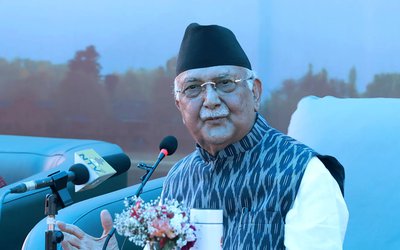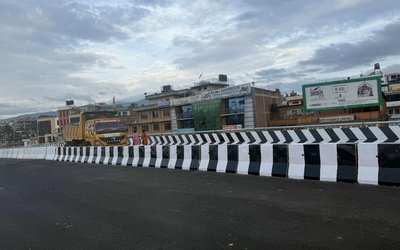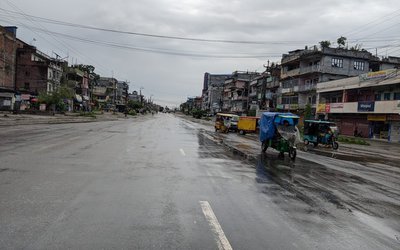Nepal has achieved certain progress in Millennium Development Goals in the last one decade but there are challenges as well to achieve success in other goals and targets. Along with the progress made by achieving numbers of goals and targets, the progress remains unequal with respect to geographical locations, gender and social groups.
Nepal Millennium Development Goals Progress Report 2010 points out, “Although the progress at national level in a number of goals and targets has been noteworthy, the progress has been unequal with respect to geographical location, gender and social groups. Enhancing employment opportunities and eradicating inequality and social exclusion remain major challenges. It is imperative that all of the country’s people reap the benefits of development.”
Despite meeting some goals, enhancing employment opportunities and eradicating inequality and social exclusion remain major challenges. Service delivery is difficult for the people living in remote parts of Nepal. Discrimination, exclusion, poverty and unemployment are rampant in many rural areas.
Past ten years of studies have shown that Nepal has made consistent progress towards achieving MDGs in most sectors and subsectors. Despite intensive violent conflict and political instability, percentage of people living below the national poverty line has significantly reduced.
The reports indicated that achieving the targets for employment, hunger, gender parity in tertiary education and environmental sustainability by 2015 appears to be extremely challenging.
“We need to be careful in implementing the programs. New phenomenon is appearing in the context of climate change and environmental sustainability is going to be a major challenge. The Three Year Plan has made certain efforts to highlight the problems and ways to tackle them,” said Vice Chairman of National Planning Commission Jagadish Chandra Pokharel, PhD. “We propose a long term and a short term plan to meet the gap.”
Others too agree that meeting other goals and targets of MDG needs different approach. “We have made good progress in some sectors but we need to carry out more focused programs to improve the situation in other sectors,” said Dr. Pushkar Bajracharya, member of National Planning Commission. “Nothing is impossible if we identify gaps and trends to fill.”
At a time when recently released report of MDG Goals indicated that Nepal is far to achieve MDG goal in access to safe drinking water and basic sanitation, Nepal is celebrating Global Hand washing Day on October 15. More and more under five children still die each year in Nepal as a result of diarrhea. Hand washing with soap at critical times - including before eating or preparing food and after using the toilet – can save lives by reducing diarrhea rates by more than 40 per cent.
According to Department of Water Sanitation and Sewerage, the access to sanitation facilities is much less in rural areas where only 37 percent have sanitation facilities compared to urban areas 78 percent.
A large number of population does not use toilet and people still rely on open defecation*, the riskiest sanitation practice of all. Hand washing day will also contribute to help Nepal meet its MDG target.
Since Nepal’s home minister Bhim Rawal who returned after taking part in UN Summit getting with words of praise, the data and information presented in the Nepal Millennium Development Goals Progress Report 2010 and the identification of trends and gaps between targets and achievements up to 2010 will help policy-makers, planners and development activists to set the path for meeting the MDGs within the deadline of 2015.















